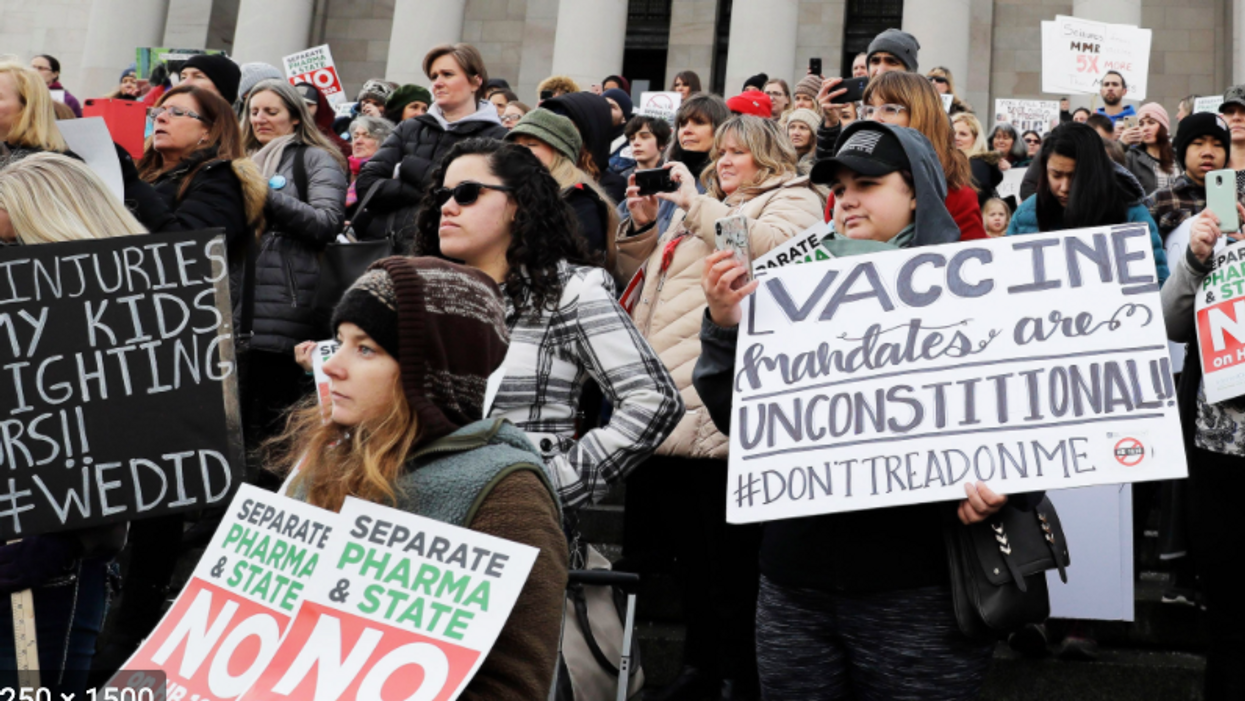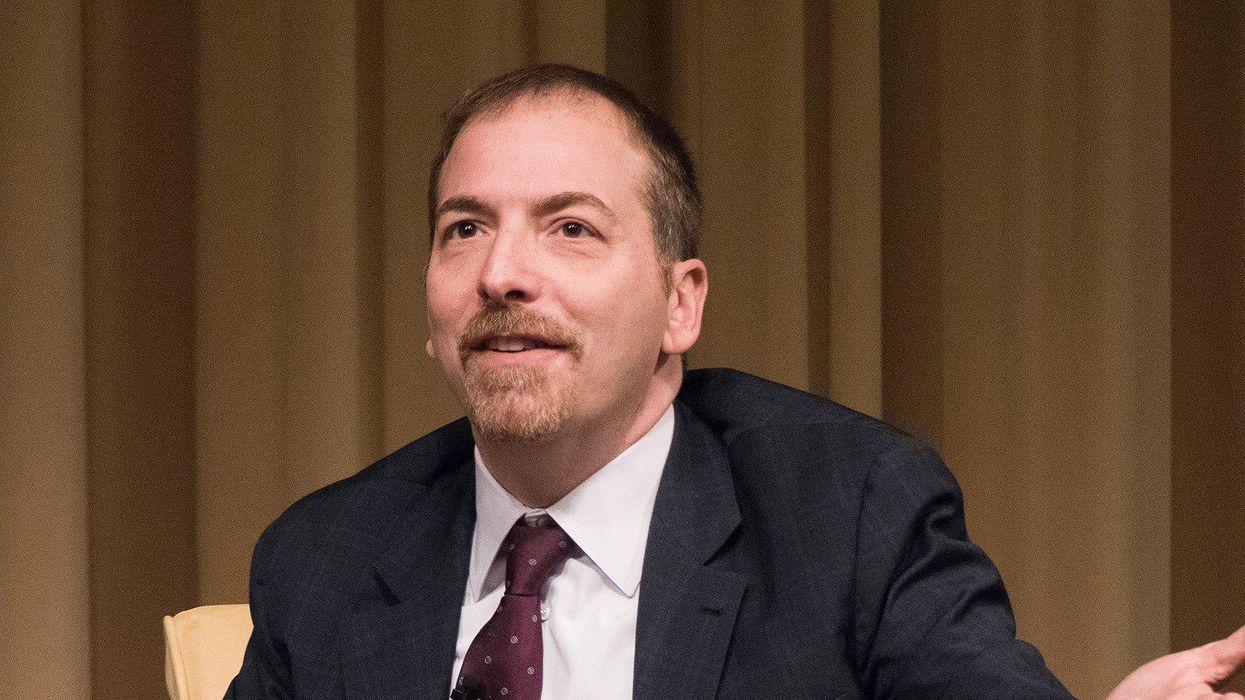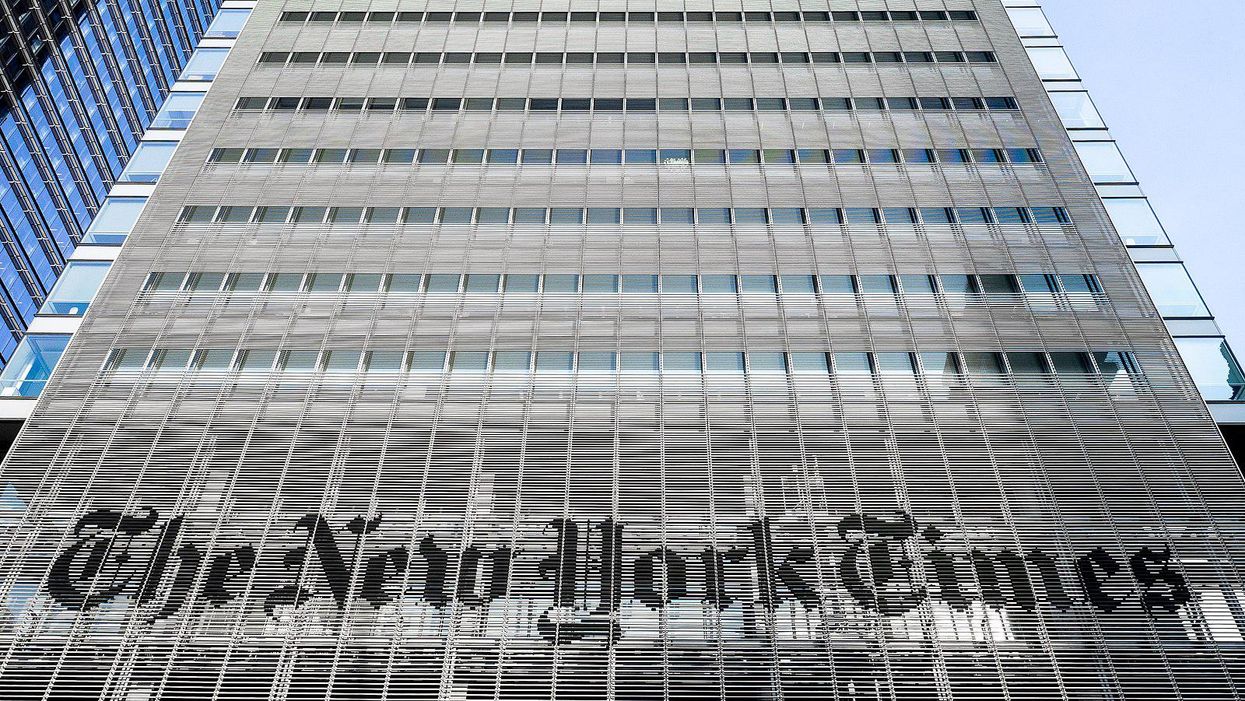Who Cares If Anti-Vaxxers Quit Their Jobs?
Reprinted with permission from PressRun
Wringing its hands at the sight of workers walking away from jobs when faced with simple vaccine mandates, the Wall Street Journal over the weekend became the latest national news outlet to shower attention on the topic.
The sympathetic, 2,000-word Journal piece focused on a minuscule portion of the workforce that has irrationally decided not to take a free, safe, and effective vaccine. Instead of presenting these actions as delusional, the press often frames the quitting as being principled or even heroic. (The "resistance" is "unwavering," the New York Times announced.)
The continued, hand-holding coverage — "brainwashing" is virtually never used — represents the latest example of the press helping to normalize irrational, nihilistic behavior by Trump followers.
As we watch a parade of unreasonable people needlessly blow up their careers and walk away from good paying jobs with excellent benefits, the questions that linger are, should we care, and should this trend be breathlessly treated as Big News by the media? Should we care that a tiny percentage is embracing rabbit-hole conspiracies about a vaccine that nearly 200 million Americans have safely taken? Should we care that they've decided to believe non-stop lies to the point where they'll likely be unemployable for months, and maybe years to come?
It's true that Covid dead-enders affect us all because epidemiologists estimate that 85 percent of the population needs to be vaccinated before the virus is truly under control.
But the media's specific fixation on anti-vaxxers quitting their jobs seems misguided and out of place. And the coverage clearly feeds off a lack of context. That Journal's weekend report looked at anti-vaccine nurses who once worked at Virginia and West Virginia-based Valley Health System. But nearly 6,000 of the company's 6,200 employees have complied with the vaccine mandate.
The New York Times on Sunday published a long, 2,000-word story about anti-vaxxers quitting their jobs, focusing on public school employees in New York City, where 96 percent of workers have complied with the vaccine mandate. Ninety-six percent — shouldn't that be the story?
The Washington Post last week shined a spotlight on journalists who have refused to get vaccinated and how their dismissals have created lots of media attention. But the article could barely find a dozen examples of that happening nationwide.
USA Today excitedly reported that 1,887 Washington state employees had quit positions after Gov. Jay Inslee's vaccine mandate went into effect — that's out of a pool of 63,000 employees.
Fox News' Brian Kilmeade recently claimed that every company implementing a vaccine mandate will lose "10 to 15 percent of your workforce," which is categorically false. The national average appears to be less than 5 percent.
When "dozens" of South Carolina workers protested outside a local General Electric plant in Greenville to complain about the company's vaccine policy, the plot generated lots of local coverage, even though the vast majority of GE's 3,200 employees at the site are abiding by the mandate.
This imprudent fixation represents Both Sides journalism taken to an absurd extreme where the radical, barely-there minority is held up as being equally important and newsworthy as the vast majority.
It's true that the irrational quitting is news in that the trend is novel and quite unusual. Often in the past when these types of jobs (police, firefighters, etc.) made news it was because groups of people went to court to sue because they were denied access to the payrolls based on race and gender. Now anti-vaxxers are giving up these previously coveted jobs.
The problem is that the constant coverage allows anti-vaxxers a platform to spread more misinformation, as they relay their unsupported reasons for refusing to get inoculated. From the Journal's nurse article: "Some believe the vaccine's development was too rushed and are worried about the possible unknown long-term effects on their health." One nurse insisted, "The government shouldn't be telling us what to do."
The Journal made no mention that the government for nearly a century has "told us" to follow speed limits and to vaccinate our children for mumps and measles if they want to attend public school. Yet today's newfound anti-government radicals never objected.
Some reporting includes caveats that none of the anti-vax rationales are supported by science. (For example, getting vaccinated has no impact on the ability of women to get pregnant.) But more often than not the relentless attention presents the job-quitters as common-sense, thoughtful people.
Question: If there were an unhinged far-left movement where grown men and women walked out on their careers because they refused to wear shoes and shirts to work, would they receive sympathetic press coverage? Or would their mental health be rightfully questioned?
The anti-vaxxer coverage also creates the false picture that Americans are deeply divided over vaccines, and that the inoculation push under President Joe Biden has been a failure. Neither is true. Yet the press can't stop framing the issue that way. And they can't stop pushing vaccine critics to the front of the line.
When a new poll showed Americans by nearly 20 points approve of the vaccine mandates that Biden has put into place, the first person quoted in an Associated Press story about the poll was an anti-vaxer Republican who denounced the policy.
Brainwashed Covid zombies will continue to walk away from good paying jobs and put their families at risk, economically. But that doesn't mean we have to care. And that doesn't mean it's news.












